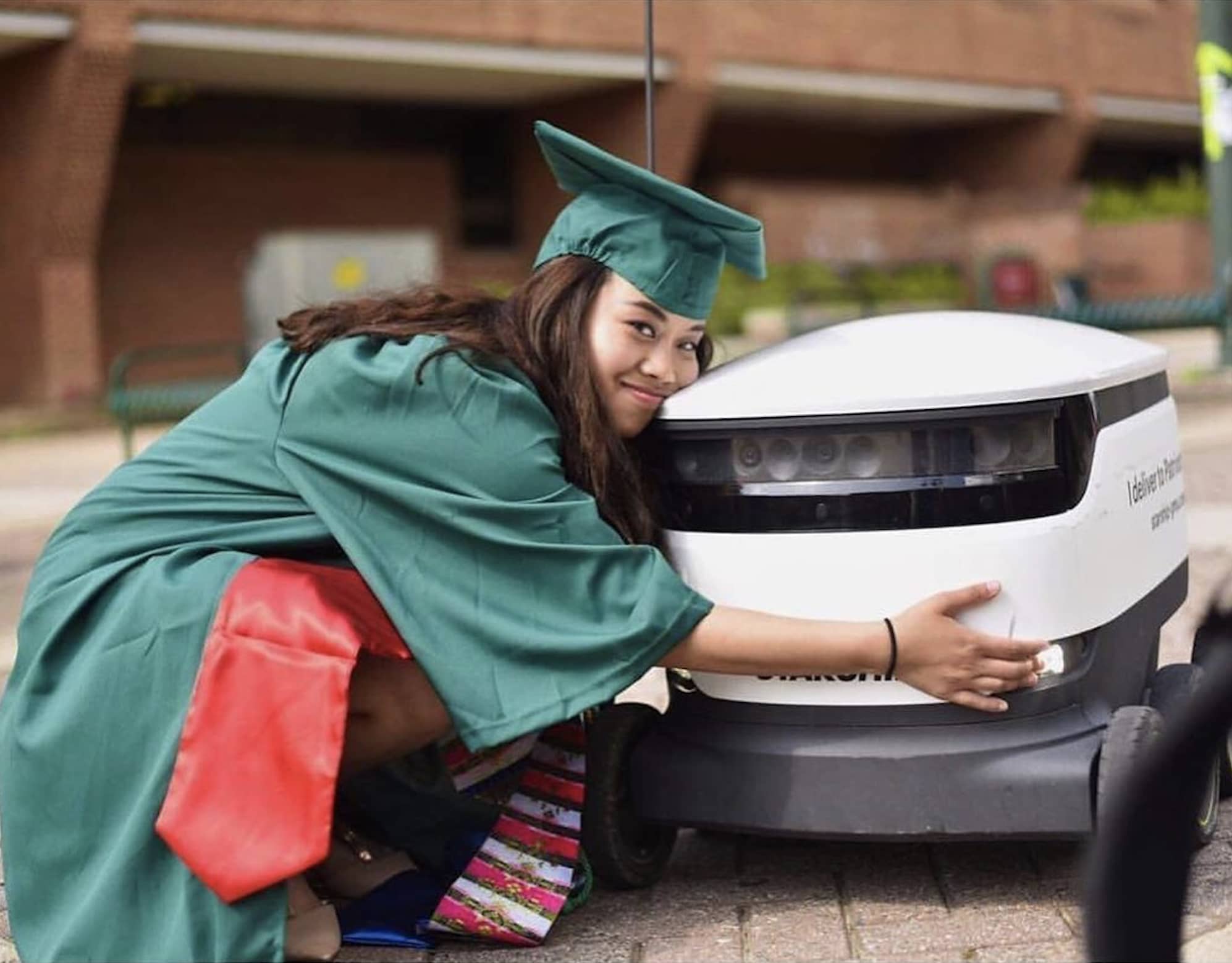
Starship Technologies' delivery robots are rolling out to college campuses including Purdue University and the University of Pittsburgh.
Starship Technologies
Self-driving robots from Starship Technologies can now deliver Starbucks, Blaze pizzas, sushi rolls, and almost anything but alcohol to students on college campuses in the U.S. via partnerships with food service companies including Sodexo and Compass Group.
University of Pittsburgh and Purdue University are the latest to get the robots, following in the footsteps of George Mason University and Northern Arizona University. Students use the Starship app to order at all hours of the day and night, and can pay with their meal card if they're buying items covered through their plan. They typically pay a delivery fee of $1 to $2, and get their delivery within a half-hour of placing the order.
Fleets of the robots should be on 100 U.S. campuses within the next two years, according to Starship CEO Lex Bayer. To support that expansion, the company raised $40 million in fresh venture funding, bringing its total capital raised to $85 million.
Bayer told CNBC that the robots, which he refers to as autonomous vehicles, are ideally suited to make deliveries on sidewalks and narrow campus streets where cars aren't permitted or can't fit. The delivery service can also give local stores and restaurants a shot in the arm to fight against online sellers.
"Why buy a wrench online from an e-commerce site that will get there two days later when you can buy it from a local hardware store and have it in half an hour?" Bayer asks.
Unlike delivery drones, and self-driving cars, states have been quick to sort out regulations allowing the pervasive use of autonomous delivery robots. That's because they are comparatively lighter and slower and therefore less likely to hurt people or damage property.
Nine states already allow the use of these robots, giving Starship access to reach at least 100 million people, the CEO said. For now, the company delivers mostly groceries, hot meals, and retail packages to its customers on college campuses, corporate campuses and other communities.
The company recently notched its 100,000th delivery and has dropped off at least 6,000 pizzas, 9,000 sushi rolls, 5,000 bananas and hundreds of thousands of diapers to customers, Bayer said.
Starship aims to someday deliver pharmaceuticals. But for now, its most important delivery was a bill that the company rolled out to Washington Gov. Jay Inslee to sign into law in April. Of course, the bill enabled delivery robots to operate commercially in the Evergreen State.
Competitors to Starship range from traditional food delivery businesses to Uber Eats and Amazon's Scout delivery robots.
Correction: The robots are not currently slated to come to Indiana University in September. Sorry, Hoosiers.
Follow @CNBCtech on Twitter for the latest tech industry news.
Read More




No comments: